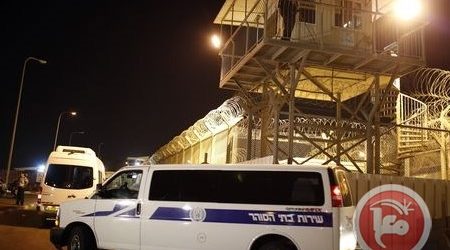PALESTINIAN PRESIDENCY: MIDDLE EAST MUST FREE OF NUCLEAR WEAPONS
 Ramallah 21 Muharam 1435/24 November 2013 (MINA) – The Palestinian Presidential spokesman Nabil Abu Rudeineh, in a statement Sunday, said commenting on the agreement reached between Iran and the six courtiers that “we want a middle east free of nuclear weapons.”
Ramallah 21 Muharam 1435/24 November 2013 (MINA) – The Palestinian Presidential spokesman Nabil Abu Rudeineh, in a statement Sunday, said commenting on the agreement reached between Iran and the six courtiers that “we want a middle east free of nuclear weapons.”
He said that the international efforts that have succeeded in Geneva are a chance to activate the international quartet’s role in ending the Palestinian-Israeli conflict.
He added that the reaching of an agreement in Geneva is an important massage for Israel to realize that peace is the only option in the Middle East, WAFA, Palestinian News & Info Agency reported as quoted by Mi’raj News Agency (MINA).
On Sunday, the P5+1 world powers and Iran have struck a historic deal on Tehran’s nuclear program at talks in Geneva on Sunday. Ministers overcame the last remaining hurdles to reach agreement, despite strong pressure from Israel and lobby groups.
Under the interim agreement, Tehran will be allowed access to $4.2 billion in funds frozen as part of the financial sanctions imposed on Iran over suspicions that its nuclear program is aimed at producing an atomic bomb.
Iran’s foreign minister, Javad Zarif, called the deal a “major success” and said Tehran would expand its cooperation with the International Atomic Energy Agency (IAEA).
While Iranian President Hassan Rouhani announced that the deal reached in Geneva shows that world powers have recognized Tehran’s “nuclear rights.”
“Constructive engagement [and] tireless efforts by negotiating teams are to open new horizons,” Rouhani said on Twitter shortly after the announcement.
In turn, the IAEA said it is ready to check that Iran keeps its commitments under the deal.
“With the agreement of the IAEA’s Board of Governors, the Agency will be ready to fulfill its role in verifying the implementation of nuclear related measures,” said Director General Yukiya Amano as cited by Reuters.
Foreign ministers from the US, Russia, UK, France, China, Germany and the EU hailed the deal as a step toward a “comprehensive solution” to the nuclear standoff between Tehran and the West. The interim deal was reached early Sunday morning in Geneva after some 18 hours of negotiation.
“While today’s announcement is just a first step, it achieves a great deal,” US President Barack Obama said in a statement at the White House. “For the first time in nearly a decade, we have halted the progress of the Iranian nuclear program, and key parts of the program will be rolled back.”
However, Obama said that if Iran fails to keep to its commitments over the next six months, the US will “ratchet up” sanctions. US Secretary of State John Kerry, a key participant in the Geneva talks, said that Iran still had to prove it is not seeking to develop atomic weapons.
Tehran has repeatedly denied that it is developing atomic weapons, however, and maintains that its nuclear program is purely for civilian purposes.
Uranium enrichment
As part of the agreement, the international community has accepted Tehran’s right to a peaceful nuclear program. But after the deal was struck, participants in the Geneva talks put different interpretations on the issue of Iran’s right to enrich uranium.
Iran’s Deputy Foreign Minister Seyed Abbas Araghchi wrote on Twitter that the right to enrichment had been recognized in negotiations, and after the deal was clinched Russian Foreign Minister Sergey Lavrov said the deal accepted Tehran’s right to enrich uranium.
“This deal means that we agree with the need to recognize Iran’s right for peaceful nuclear energy, including the right for enrichment, with an understanding that those questions about the [Iranian nuclear program] that still remain, and the program itself, will be placed under the strictest IAEA control,” Lavrov told journalists.
John Kerry had a different spin on the deal, however, telling the media that it did not recognize Tehran’s right to enrich nuclear fuel.
“The first step, let me be clear, does not say that Iran has a right to enrich uranium,” Kerry said.
Israel has already voiced its opposition to the deal with Iran, claiming it is based on “Iranian deception and self-delusion.” Prime Minister Benjamin Netanyahu condemned the agreement as a “historic mistake” and said the world had become a more dangerous place. (T/P02/P04/E1)
Mi’raj News Agency (MINA)






